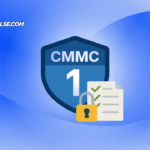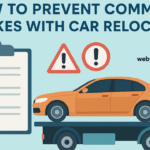In the age where technology is literally at our fingertips, many questions have and will continue to arise around whether tech is a good or bad thing. Could it be both? The use of tech may be affecting our ability to feel empathy for others, especially if we spend more time communicating remotely instead of in person.
For some people, empathy is already a battle. Those with empathy deficit disorder already have a natural deficiency in the ability to put themselves in other people’s shoes. What happens when tech comes into play? (If you would like to learn more about empathy deficit disorder (EDD), you can read more here https://www.mind-diagnostics.org/blog/empathy-deficit-disorder.)
Technology has made the world more convenient, especially when we must accomplish the most basic of tasks. Need dinner, grab some tech and have your food at your door in 30 minutes. Need groceries? Grab some tech, and you’ve got them delivered in a couple of hours. Need some more light bulbs? Grab some tech, and they’re at your doorstep the next day.
Tech does other beautiful things too, like enabling us to work from home, communicate with people worldwide, and learn new and fascinating things we could never have accessed before the technological revolution. And, it has opened our doors to an entirely new, vivid world of entertainment.
Tech has not, however, strengthened our most important relationships. Yes, we communicate more now that we have tech; just think of all those skypes, zooms, meets, Instagram posts, Facebook posts, tweets, TikTok clips, or YouTube uploads. We talk more but has the quality of the conversation improved?
The one crucial component missing through connection enabled by tech is eye contact. Eye contact is the key to close-knit relationships; it is the gateway to empathy, it is the signal that shows communication is being achieved.
When we communicate or not communicate via tech, eye contact, and thus all of those qualities associated with it go out the window. Our communication with those we’re closest to is no longer intimate. When we see things happen on a computer screen versus real life, the ability to feel empathy on the same level is deeply challenged.
When we’re involved in so many non-communicative activities online, we’re taking in-person communication time away from those most important to us who are actually physically in the same room. Tech can be a wondrous thing and a very slippery slope all at the same time.
Some would argue it’s helping us connect with others we otherwise wouldn’t talk to
Others say it’s making us more dependent on tech and less able to form physical face to face connections
We’re obviously not going to get rid of tech in our homes, on our desks, and in our hands, and we shouldn’t have to. But there are steps we can take to ensure tech doesn’t get in the way of our ability to form and maintain strong human connections with others. In fact, tech can get the ball rolling in many cases that help us branch out, meet new people, and form long-lasting friendships both in-person and online.
If you’re concerned you’re spending way more time with tech than with real people, place some guidelines down for yourself. Make a goal of personal interaction every day with other people in person. Set limits on how much screen time you’ll allow yourself or family members daily. Set no tablet or phone hours each day where everyone must put their tech away for at least one hour and reconnect face to face, with plenty of eye contact.
Marie Miguel Biography:

Marie Miguel has been a writing and research expert for nearly a decade, covering a variety of health- related topics. Currently, she is contributing to the expansion and growth of a free online mental health resource with Mind-Diagnostics.org. With an interest and dedication to addressing stigmas associated with mental health, she continues to specifically target subjects related to anxiety and depression.












